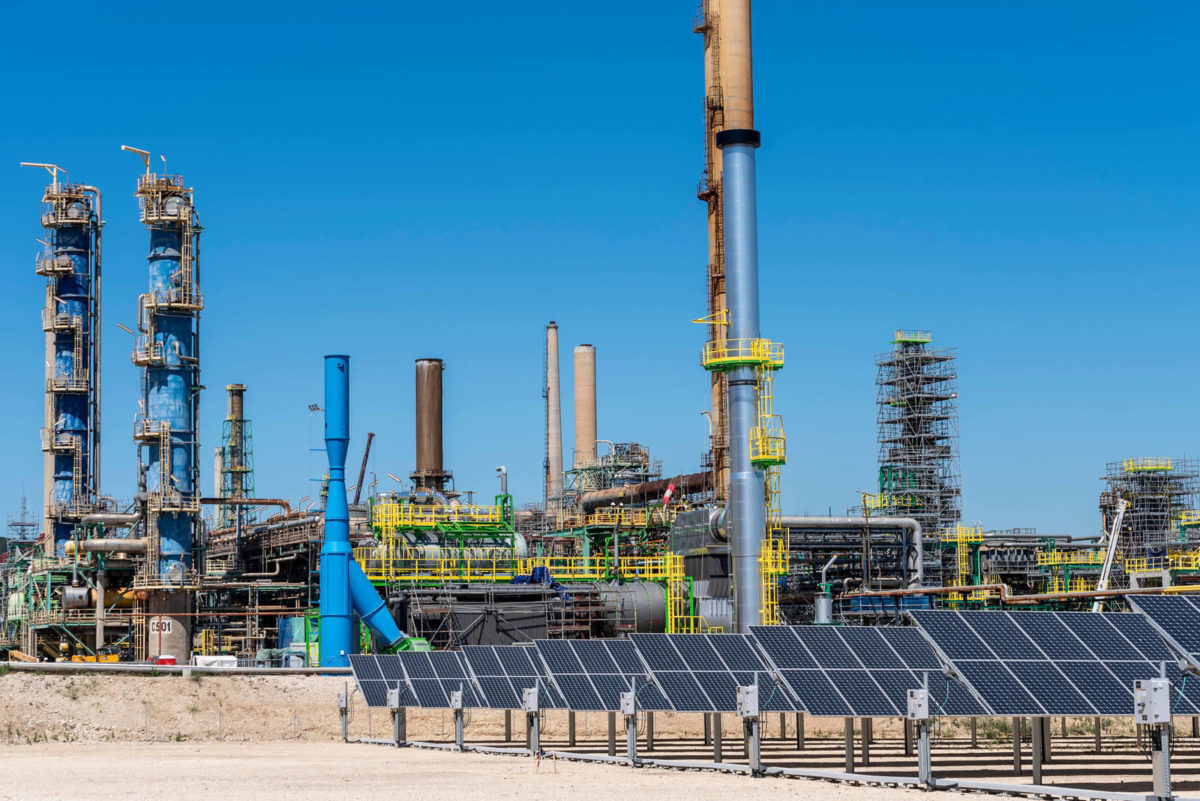From pv magazine France
Located at the heart of the Total biorefinery in La Mède, the 40 MW electrolyzer will produce 5 tonnes of green hydrogen per day, meeting the needs of the biofuel production process at the site, and avoiding 15,000 tonnes of CO2 emissions.
The electrolyzer will be powered by solar PV parks with a total capacity of over 100 MW, the two companies said in a joint statement. In addition, an innovative management solution for the production and storage of hydrogen will be implemented to manage the intermittent production of solar electricity and the need for continuous power of the biorefinery.
The project incorporates five innovations that foreshadow industry decarbonization solutions that are “unprecedented in Europe,” the designers said. These include a digital control system for the continuous supply of hydrogen with real-time management of solar electricity production, an optimization of the integration of several photovoltaic farms to minimize energy losses and limit network congestion, and large-scale hydrogen storage to balance intermittent electricity production with continuous hydrogen consumption.
In addition, a direct current connection will link a photovoltaic farm and the electrolyzer to improve the energy balance. Finally, the two entities will implement enhanced industrial safety through the use of 3D digital models for each component of the installation.
Total and Engie stated that after a pilot phase will be implemented, new renewable energy plants could be developed by their partners for the electrolyzer, which has the capacity to produce up to 15 tonnes of green hydrogen per day.
The Masshylia project has been labeled as innovative and of strategic interest for the region by several regional institutions, including the Provence-Alpes-Côte d´Azur regional government, the Aix-Marseille-Provence administration and the Capenergies competitiveness cluster. It is also being supported by local players for its ability to reduce CO2 emissions and demonstrate the economic benefits of renewable hydrogen as well as for its integration into the local ecosystem, the two energy companies said.
The partners aim to start construction of the facilities in 2022, following the end of an advanced engineering study, with a view to production in 2024, subject to the establishment of the necessary financial support and public authorizations. To this end, the project has already submitted grant applications to the relevant French and European authorities.
This content is protected by copyright and may not be reused. If you want to cooperate with us and would like to reuse some of our content, please contact: editors@pv-magazine.com.




Nice story but it won’t produce until 2024. Total is involved so no doubt we can expect to see the greenwash ads come out for this immediately though. Shame there isn’t more urgency to get this operational. At least the request for public funding has been made wouldn’t want Total to be out of pocket.